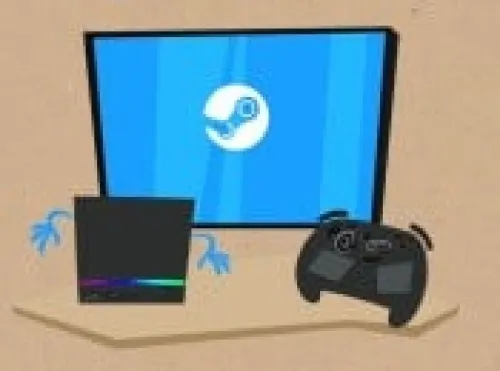
Talking Point: What Does The ‘Steam Machine’ Mean For Xbox’s Next-Gen Console Plans?
In light of Valve’s significant hardware revelation earlier today, we’ve observed extensive discussion on social platforms regarding how the Steam Machine might present considerable challenges for Xbox, PlayStation, and Nintendo, particularly with respect to Xbox.
A couple of weeks ago, it was indicated that the upcoming Xbox console could potentially bring Windows-like functionalities for the first time, facilitating access to marketplaces such as Steam, possibly making it the inaugural console to achieve this. Nevertheless, the Steam Machine might be overshadowing it somewhat, especially since it’s expected to debut significantly sooner.
Valve’s latest console-like computer is slated for release in early 2026, and although the company maintains that it is still merely a “PC”, it is essentially being set up to function like a console. It is designed to fit in your living room or on your desk, operate with a console-like controller, and enable you to enjoy all your Steam games (and other PC titles) on it.
So, how substantial of a setback is this for Xbox? Phil Spencer noted earlier today that Xbox “welcomes new avenues for gamers to access titles everywhere”, as it’s essentially aligned with what his team is pursuing via the ROG Xbox Ally, Xbox Cloud Gaming, and various other efforts. He conveys that the future should prioritize “the variety” of where to play.
However, if the speculations hold true and the next Xbox console’s distinct focus is the capability to switch to Windows, it surely diminishes the Steam Machine’s allure somewhat, doesn’t it? Sure, you still won’t be able to access all your Xbox console titles on Valve’s new PC/console, and Linux as an operating system presents its own challenges, yet if the company can establish a competitive price point, it could pose a significant challenge for Microsoft in terms of value, at the very least.
Conversely, perhaps this affirms what Xbox has been striving for all along. With the Steam Machine entering the market, one could argue that a corporation like Sony should be even more wary than Microsoft at this moment. Sony’s concentration remains largely on the PlayStation 5, while Microsoft has attempted to diversify by becoming a third-party publisher and emphasizing various forms of hardware, ensuring that the console isn’t their sole focus anymore.
In other terms, Xbox is already facing challenges in the hardware sector when compared to the PS5, hence Microsoft has somewhat scaled back. Sony appears to be reinforcing their success, which is commendable, but if the Steam Machine gains traction and PlayStation hardware sales unexpectedly decline, they might not have as much to lean back on.
It is still the beginning, and numerous uncertainties persist, but Valve has unquestionably stirred the pot somewhat with today’s announcement. If the pricing turns out to be competitive, it could significantly influence the forthcoming generation of consoles.
What are your views on this? Share your thoughts in the comments section below.
